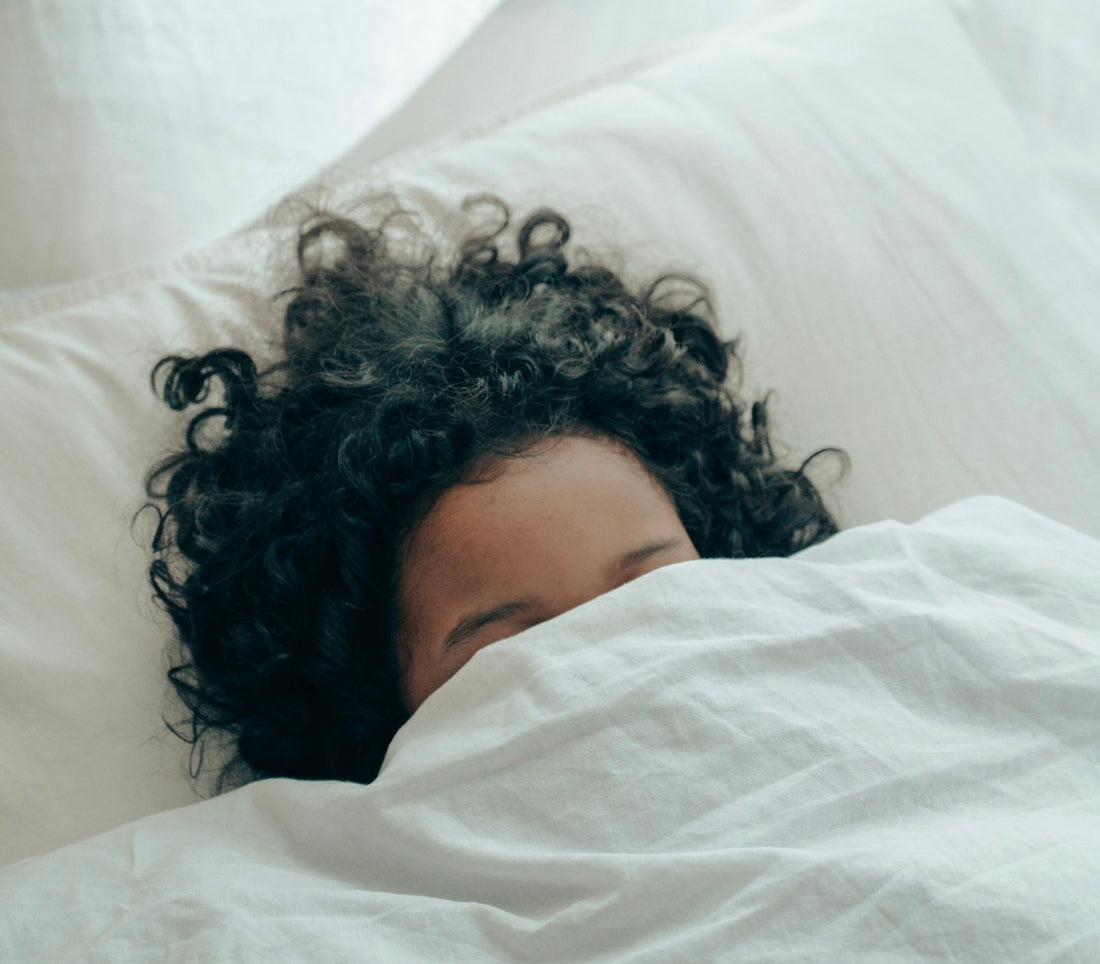Blog Sleep
The Role of Sleep in Hair Growth: How to Optimize Your Nightly Routine

Introduction
Adequate sleep is essential for overall health and well-being, and it plays a significant role in maintaining healthy hair growth. During sleep, the body undergoes numerous restorative processes that are crucial for repairing and regenerating hair follicles. In this blog, we will explore the connection between sleep and hair growth and provide tips on how to optimize your nightly routine for healthier hair.
Understanding the Connection Between Sleep and Hair Growth
Hormonal Regulation
- Growth Hormone Production: Sleep is a critical time for the production of growth hormone, which plays a vital role in cell reproduction and regeneration, including hair follicles. Growth hormone levels peak during deep sleep stages, facilitating the repair and growth of hair.
- Melatonin Production: Melatonin, the hormone responsible for regulating sleep-wake cycles, also has antioxidant properties that protect hair follicles from damage. Melatonin levels rise in the evening, promoting sleep and supporting hair growth.
Stress Reduction
- Cortisol Levels: Poor sleep can lead to elevated levels of cortisol, the stress hormone. High cortisol levels can disrupt the hair growth cycle, leading to hair thinning and shedding. Ensuring adequate sleep helps regulate cortisol levels, reducing stress and promoting healthy hair growth.
Blood Circulation
- Nutrient Delivery: During sleep, blood circulation improves, delivering essential nutrients and oxygen to hair follicles. This enhanced blood flow supports the health and vitality of hair follicles, promoting growth and reducing hair loss.
Cell Repair and Regeneration
- DNA Repair: Sleep allows the body to repair damaged DNA and cellular structures. This repair process is crucial for maintaining healthy hair follicles and preventing damage that can lead to hair loss.
Tips for Optimizing Your Nightly Routine
Maintain a Consistent Sleep Schedule
- Regular Sleep Patterns: Aim for 7-9 hours of sleep per night and maintain a consistent sleep schedule by going to bed and waking up at the same time every day, even on weekends. Consistency helps regulate your body’s internal clock, promoting better sleep quality.
Create a Relaxing Bedtime Routine
- Wind Down: Develop a relaxing bedtime routine to signal to your body that it’s time to sleep. Activities such as reading, taking a warm bath, or practicing mindfulness meditation can help you unwind and prepare for a restful night.
Optimize Your Sleep Environment
- Comfortable Bedding: Ensure your mattress and pillows are comfortable and supportive. Consider using silk or satin pillowcases to reduce friction and minimize hair breakage.
- Dark and Quiet: Keep your bedroom dark, quiet, and cool to create an optimal sleep environment. Use blackout curtains, earplugs, or white noise machines if necessary.
Limit Exposure to Screens Before Bed
- Reduce Blue Light: Exposure to blue light from screens (phones, tablets, computers) can interfere with melatonin production and disrupt your sleep. Avoid screens at least an hour before bedtime or use blue light filters.
Practice Stress-Reduction Techniques
- Mindfulness and Relaxation: Incorporate stress-reducing practices such as yoga, deep breathing exercises, or progressive muscle relaxation into your nightly routine. Reducing stress can help lower cortisol levels, supporting healthier hair growth.
Maintain a Balanced Diet
- Nutrient-Rich Foods: Eat a balanced diet rich in vitamins and minerals essential for hair health, such as biotin, vitamin E, zinc, and iron. Proper nutrition supports overall health and promotes strong, healthy hair.
Stay Hydrated
- Drink Water: Ensure you’re drinking enough water throughout the day to stay hydrated. Proper hydration is essential for maintaining healthy hair and skin.
Consider Supplements
- Hair Growth Supplements: If you’re concerned about hair loss or want to support hair growth, consider taking supplements designed for hair health. Look for supplements that contain biotin, collagen, and other essential nutrients that support hair growth.
Prioritizing your sleep is a key component of maintaining healthy hair. By understanding the connection between sleep and hair growth and implementing these tips to optimize your nightly routine, you can support your hair’s natural growth cycle and enjoy healthier, more vibrant hair.

